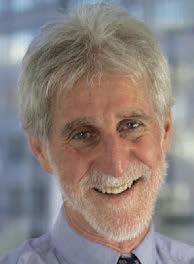Peter's Memo: I’ve a feeling we’re in Kansas, Toto

Pascal Debrunner - unsplash.com.

The U.S. Department of Agriculture has always had a built-in conflict of interest, given its dual missions of protecting both agribusiness and the public’s health. Sadly, two recent actions suggest that the agency’s commitment to safeguarding consumers is flagging.
■ Privatizing pork inspection. In September, the USDA published a rule transferring some of the work once done by USDA inspectors to private-slaughterhouse employees.
The rule would also allow slaughter lines to run at unlimited speeds, raising concerns that diseased animals will end up in the food supply, that slaughterhouse workers will get injured, or that some hogs won’t get stunned before they’re killed.
In June, the USDA’s Inspector General started an investigation to find out if the agency hid data on workers’ injuries while the proposed rule was open for public comment. And in October, a union that represents meatpackers filed a lawsuit charging that lifting the cap on line speeds—currently set at roughly 18 hogs per minute—will endanger workers.
The USDA privatized poultry inspection in 2014, but with two key differences: First, the agency kept caps on slaughter-line speeds. Second, it set standards for inspectors to test poultry for Salmonella and Campylobacter bacteria before letting industry inspectors take over. The pork rule includes neither.
The Center for Science in the Public Interest (which publishes Nutrition Action) will continue to fight the new pork-inspection rule. We’re urging Congress to block the rule’s funding until the USDA sets standards for both food safety and worker safety.
■ Gutting the Economic Research Service. In June, USDA secretary Sonny Perdue decided to move most employees of the Economic Research Service (ERS) and the National Institute of Food and Agriculture (NIFA) from Washington, DC, to Kansas City on little more than three months’ notice.
At CSPI, we rely on ERS data to track what Americans eat, food safety recalls, and antibiotic use. But the agency does much more.
Critics charge that Perdue moved the ERS because the administration wasn’t pleased with some of its work on climate change, tax cuts, and tariffs.
“Perdue did not move the Economic Research Service to Kansas City. He gutted it,” wrote Laura Dodson, acting vice president of the ERS union, in the Washington Post in October.
Of the 200 people who were told to move to Kansas City or lose their jobs, only 16 relocated, she added.
“There are stacks of reports and research completed with no staff left to publish the results,” noted Dodson. “Data sets are abandoned, and a generation of scientific expertise extinguished.”
What a loss, not just for the USDA but for all of us. It’s never wise to wage a war on science because you don’t like what it finds.
Peter G. Lurie, MD, MPH, President
Center for Science in the Public Interest
Photo: Pascal Debrunner/unsplash.com.

